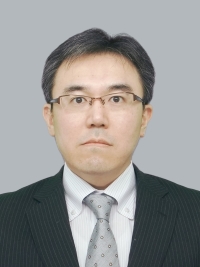【Major Papers of the Laboratory】
・Comparative sequence analysis of patient-matched primary colorectal cancer, metastatic, and recurrent metastatic tumors after adjuvant FOLFOX chemotherapy., BMC cancer, 19(1), 255, 20190300
・A phase I, pharmacokinetic and pharmacodynamic study of nimotuzumab in Japanese patients with advanced solid tumors., Cancer chemotherapy and pharmacology, 72(5), 1063-1071, 20131100
・Antitumor action of the MET tyrosine kinase inhibitor crizotinib (PF-02341066) in gastric cancer positive for MET amplification., Molecular cancer therapeutics, 11(7), 1557-1564, 20120700
【Education】
Medical oncologists who specialize in chemotherapy are required not only to have the ability to select the chemotherapeutic regimen that are highly effective, but also to appropriately manage side effects. In addition to proficiency in chemotherapy, medical oncologists are required to have the ability to select the optimal treatment including other treatments such as surgery and radiotherapy, the ability to perform the treatment management with consideration for the quality of life (QOL) and social backgrounds of patients and their families, and the ability to establish a system to perform chemotherapy effectively and safely by collaborating with many other departments. Furthermore, medical oncologists are required to commit the clinical development of chemotherapy and supportive care, to explore for biomarkers that predict the efficacy, resistance, or side effects of chemotherapy, and to conduct the clinical development of chemotherapy based on biomarkers.
Undergraduate education: The aim to learn about the mechanisms of action and characteristics of chemotherapy (cytotoxic drugs, molecular targeted agents, immune checkpoint inhibitors, etc.) and the typical side effects of each drug and each regimen. Another aim is to learn how to select the treatment regimen and supportive care and to manage the treatment with chemotherapy depending on the complication and social background of each patient with actual cases.
Graduate school education: The aim to learn about basic research and the process of clinical development of anti-cancer drugs, as well as acquire the knowledge necessary for clinical trial planning and drug development. Other aims are to explore for predictive biomarkers of efficacy or resistance of chemotherapy, to plan and conduct the clinical trial for the development of chemotherapy and supportive care, and to implement the clinical development of chemotherapy based on biomarkers.
【Research】
・Exploratory research of biomarkers for prognostic factors and predictive factors of efficacy for chemotherapy in solid tumors
・Clinical development of chemotherapy based on biomarkers in solid tumors
・Clinical trials for development of chemotherapy and supportive care in solid tumors
・Exploratory research of mechanisms for the efficacy and resistance of chemotherapy in solid tumors
・Clinical research for management of chemotherapy in solid tumors

 Home
Home

